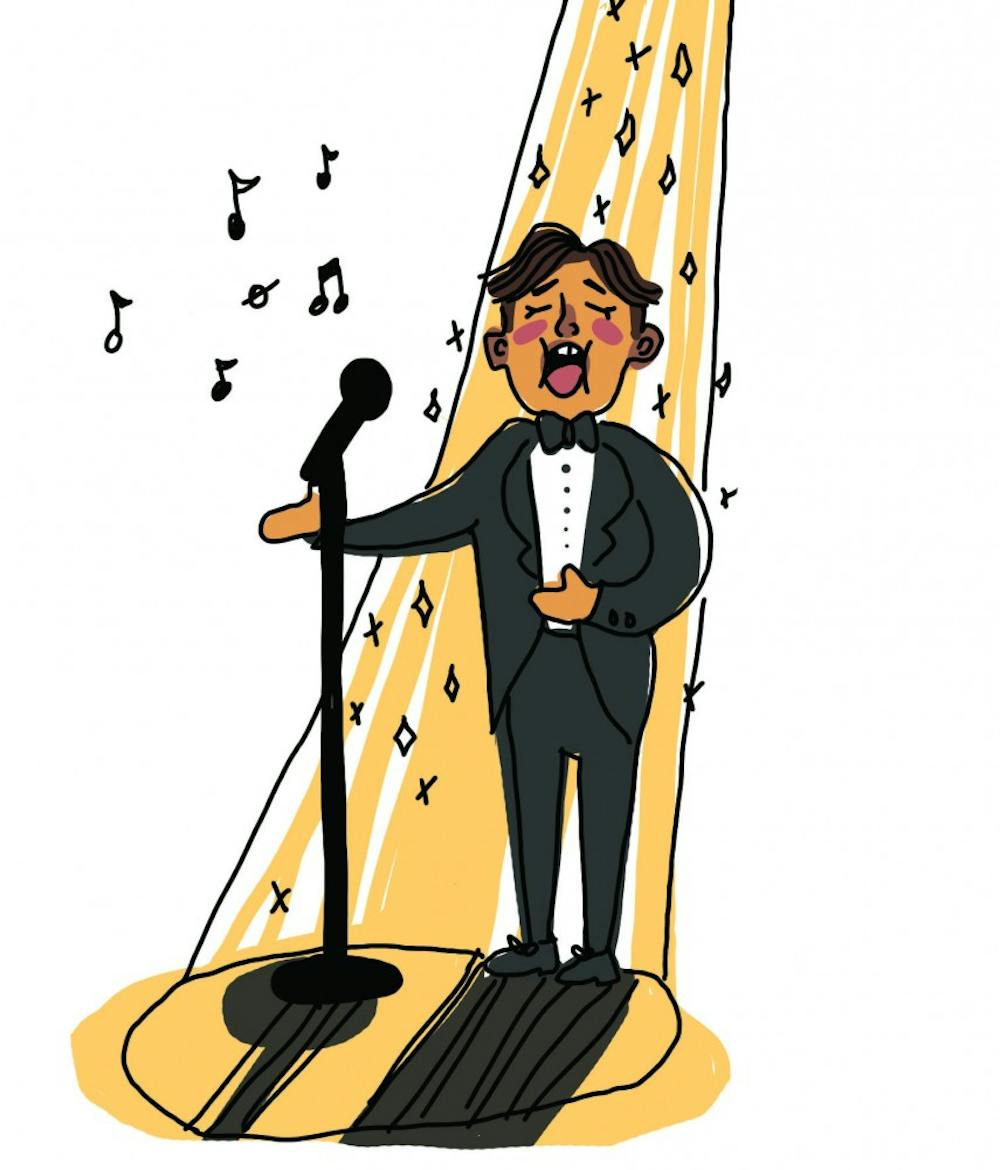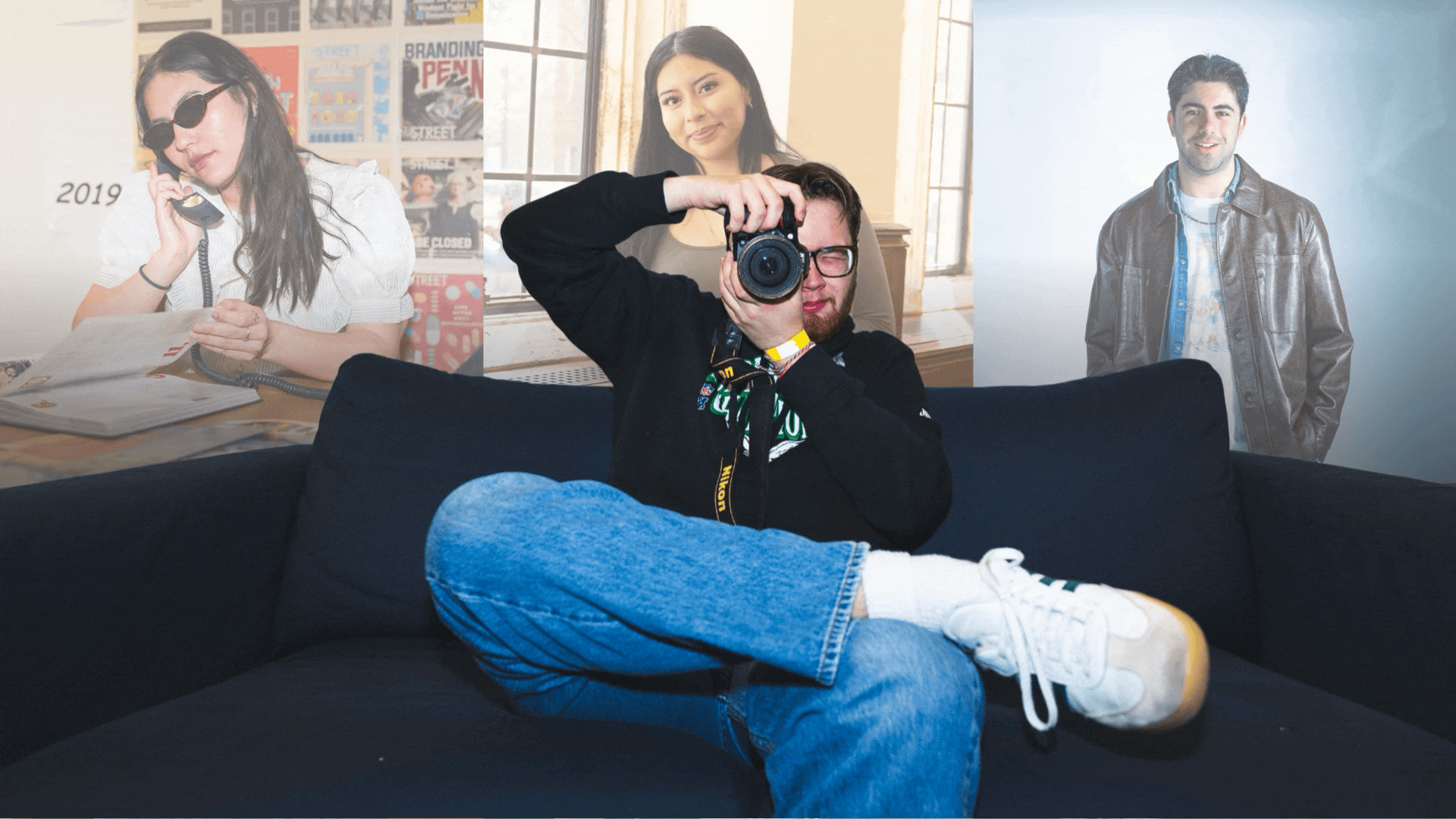The moment I decided to become a professional opera singer started with sobbing.
It was one of those scorching Berkshire days during the summer before my freshman year, when the prospect of a swim seemed far more enticing than performing with the Boston Symphony Orchestra. Instead of scrolling through an Excel spreadsheet or cramming for summer classes, I was in the chorus in a semi–staged production of Candide. My role was nothing big to write home about, but the production itself marked an important moment for everyone in the cast and company. The last time Candide was done at Tanglewood, the famous composer Leonard Bernstein had conducted the production himself. Now it was the final dress after a long week of seven and eight–hour rehearsal days, and the proliferation of body odor and general air of agitation meant everyone was ready to get the show on the road.
For the final dress rehearsals, usually the afternoon before the first concert, patrons can pay a little less to watch us (hopefully) get it all together at the last minute. That Thursday afternoon, a couple in their mid–30s sat in the second row of the Koussevitsky Music Shed. I could see them perfectly from the spot on stage where I perched for the majority of the show. She stayed cuddled in his arms for most of the rehearsal.
For those reading this who have never seen Candide (I’d guess 98% of you), the opera is based on Voltaire’s ironic comedy of the same name, satirizing the 18th century enlightened postulate of optimism. Most of the music is an upbeat, playful paradox of the tragedy that occurs throughout the story, until the closing number, “Make Our Garden Grow,” brings the house down on a more serious note.
As the final word and the final chord of the final song struck at that final dress rehearsal, I looked down to see that couple, the both of them, bawling their eyes out. Sobbing, waterworks—I can’t even think of another analogy. Any disdain or dejection I had for the long hours and tough memorization for that production was washed away with their tears. This wasn’t work. How could it be?
For that split second, that young couple was no longer in Lenox, Massachusetts. They were in "Lenny" Bernstein’s interpretation of Voltaire’s interpretation of 18th century Thunder–ten–ronchk, Westphalia. And that’s where music is the only state–of–consciousness–altering drug taken aurally, rather than orally.
That was the most clichéd thing I’ve ever written. But it’s totally true.
I think the appeal with classical music and opera, to me at least, is that it transports you back in time while simultaneously staying modern and relevant. Such specific political pieces about American conquests in late–19th century Japan have the themes that allow them to be adapted to the setting of the Vietnam War, 100 years later. Such period tales of dirt–poor bohemian artists, writers and philosophers in 1840s Paris and a love cut short by tuberculosis become a commentary on AIDS in America in the 1990s.
It’s something you can’t read in a book or find on the floor of the New York Stock Exchange. And that's why I'm going to pursue opera full time after graduation.
Making a living from opera never seemed like a viable option. Of course, there are people in the classical music industry who make more money than stockbrokers, but those success stories are few and far between. The safe route was to go to college, reap the benefits of my grades in high school and try my chances on a great school where I can study politics.
I decided to major in PPE, and I’ve loved every second of it. But, I’ve never felt as though I have to devote myself entirely to one thing. I could very well get a B.A. in PPE at Penn while studying voice privately with a teacher from the Curtis Institute and doing performances with Opera Philadelphia on weekends. (Come see Turandot at the Academy of Music in Center City! Sept 23–Oct 2.)
So, I decided, why not give it a shot? Don’t I owe it to myself, don’t I owe it to that young couple weeping for more music? If ten years down the road I’m not where I want to be, having an Ivy League degree as a backup isn’t the worst thing in the world. Finding the right path, to me at least, is whatever is at the convergence of utility, ability and passion. Where can I give back the most to the world while giving a bit to myself as well?
While I’d be more than content using my degree and voice to fight off the evils in the political sphere (for example, the ones with orange skin and small hands), I feel like allowing that young couple to escape back in time, if only just for two hours, is how I really ought to be using my voice.







